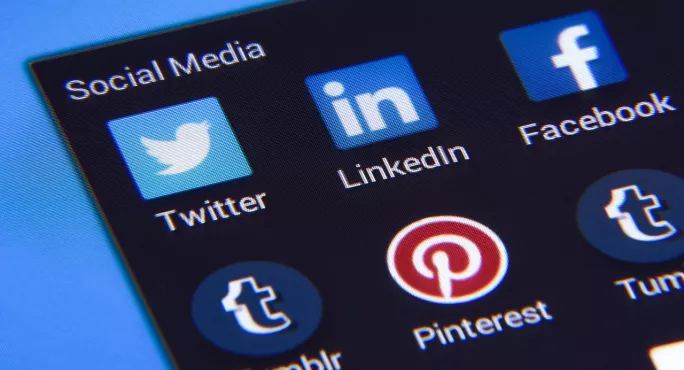
- Home
- ‘We must teach pupils it’s OK to make mistakes’
‘We must teach pupils it’s OK to make mistakes’

I want to preface this column by saying – somewhat unnecessarily perhaps for anyone who is familiar with my political and moral standpoints – I am no fan of Toby Young. I can only think of about three people in the world I would have been less likely to appoint to any kind of education advisory board, had I been in a position to do so.
However, there was something about his trial by Twitter, which happened at the beginning of this year, that didn’t sit well with me. In fact, it was only when he refused to apologise for his sexist, racist, classist and generally vile social media and column-based "banter" that I joined the calls for his resignation.
A similar thing happened to Zoella last Christmas, when outrage over her ludicrously overpriced advent calendar resulted in tweets from years previous – before her rise to prominence and in which she used fat-shaming language – were dug up and republished.
Munroe Bergdorf, the transgender model and activist who was appointed to Labour’s diversity panel earlier this year, resigned after social media posts in which she had used derogatory homophobic terms before her physical transition emerged. Bergdorf and Zoella each apologised, saying that when they wrote the posts they were "different people". And I, for one, believe them.
I worry what this culture of holding people accountable for things they said years hence means for young people and education. I’m with Ricky Gervais when he said the role of school should be to inspire a love of learning and "inflame imagination", and that this is a spark which should remain ignited throughout our lives. That curiosity and desire to improve our understanding is something that will inevitably mean we evolve, grow and change our minds.
I’m concerned also that the trend for dividing public figures into heroes and villains means that we don’t extract what they might have of value to offer or acknowledge their historical contribution. Take, for example, Germaine Greer. These days I worry deeply that she is misguided on all too many issues. Yet without her, we wouldn’t have feminism as we know it. By her own admission, Caitlin Moran was turned on to feminism by Greer as a teenager. And Moran, in turn, inspired an entirely new generation of fourth-wave feminists with her book How to Be a Woman.
Incremental enlightenment
Enlightenment happens in increments. Much is made of millennials’ supposedly famous propensity toward outrage and the current "generation snowflake" inhabiting our schools. But these people, who now range from children to those in their mid-thirties, didn’t miraculously emerge from the womb screeching: "That’s homophobic! I’m gender fluid! Let’s save the planet!" They are the product of everything that has preceded them.
Each new batch picks up the baton of the one before, extracts what is useful and reshapes the worldview for a new time. Naomi Woolf gave rise to Megan Jayne Crabbe, who has translated body positivity for her one million, predominantly young, Instagram followers. I’ve been shaped in no small measure by the works of Susie Orbach and I’m now getting people I taught as teens 10 years ago telling me they’ve adapted what they learned from me to contribute to their blogs and books and even school talks of their own.
In my new book A Beginner’s Guide to Being Mental (published last Thursday), I talk about the power of language to shape attitudes. I talk about how I deliberately chose a provocative title in a bid to reclaim a word that has traditionally been used to denigrate and silence people like me, who live with mental illness. I also acknowledge that I am sure that I use words and express opinions within its pages that I will, given the passage of time, come to see as unacceptable. Yet I had to take that risk and push those boundaries in order to further a vital conversation.
The word in the Bible that has been translated as "repentance" actually comes from an Aramaic word that means: "I have transformed so much through this experience that I am now a different person and, if the current incarnation of me were to go back, she would behave completely differently." That’s the true definition of "sorry". But what it doesn’t take into account is that sometimes we need to experiment with ideas and behaviours we will later come to see as wrong in order to arrive at the right ones. So if we could reverse time, we’d have to make that same mistake in order to reach our desired destination.
I wonder, then, what the future holds for the current generation of children, whose past opinions and decisions made at the flick of a finger are destined to haunt them forever?
Natasha Devon MBE is the former government mental health champion. She is a writer and campaigner and visits an average of three schools per week all over the UK. She tweets @_natashadevon. Find out more about her work here.
Tomorrow's Tes magazine features a major article on failure in education and asks if culture in modern schooling doesn't allow for mistakes to be made. To read the full piece, please subscribe.
Register with Tes and you can read five free articles every month, plus you'll have access to our range of award-winning newsletters.
Keep reading for just £4.90 per month
You've reached your limit of free articles this month. Subscribe for £4.90 per month for three months and get:
- Unlimited access to all Tes magazine content
- Exclusive subscriber-only stories
- Award-winning email newsletters
You've reached your limit of free articles this month. Subscribe for £4.90 per month for three months and get:
- Unlimited access to all Tes magazine content
- Exclusive subscriber-only stories
- Award-winning email newsletters


